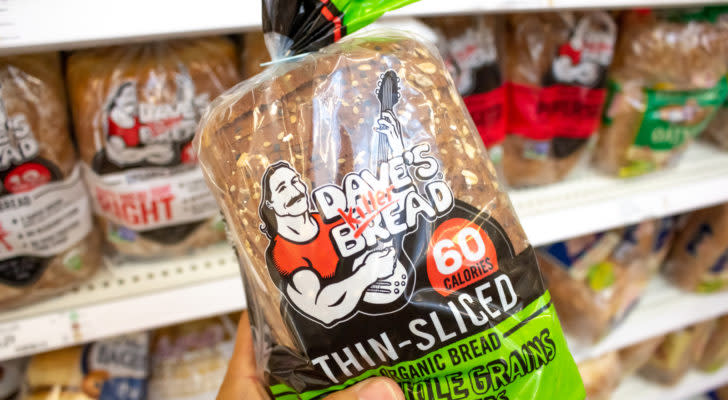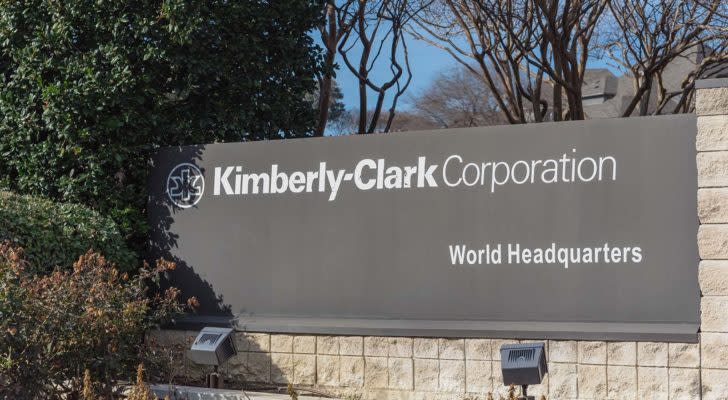3 Stalwart Stocks to Protect Your Portfolio From a Coming Crash
The one constant in investing is change. Today’s bull market will surely turn into tomorrow’s stock market crash. Volatility is the thing investors can count on the most but also use it to their advantage.
The S&P 500 is up 25% in 2023. Only on relatively few occasions over the last 100 years has the broad-based index followed up with a comparable performance the following year. Investors would do well to prepare for the worst and hope for the best. Buying dependable stocks for a market crash to protect your downside often means buying stocks that pay dividends. The regular income stream softens the blow of a falling stock price and helps outperform non-payers — all at lower risk.
There has never been a decade when dividend stocks in the S&P 500 didn’t produce positive returns. That includes both during the Great Depression and the 2000’s, the so-called “lost decade” when the index itself was negative. The following three stocks are stalwarts. They’re not momentum stocks. They offer investors a safe haven for the coming market crash.
InvestorPlace - Stock Market News, Stock Advice & Trading Tips
Flowers Foods (FLO)

Source: TonelsonProductions / Shutterstock.com
Flowers Food (NYSE:FLO) is the second-largest producer of packaged baked goods in the U.S. behind privately held Bimbo Bakeries. In addition to bread, it makes buns, rolls, snack cakes and tortillas. The company owns the two biggest brands of bread in the U.S., Nature’s Own and Wonder. Sales topped $4.8 billion in 2022, half of which came from Nature’s Own. Sales are up over 9% this year.
Founded over 100 years ago, Flowers is a classic recession-resistant stock. Because people have to eat, sales tend to rise regardless. Even during the pandemic, they rose 6.4%. Net income is up a compounded 22% over the past two years, though adjusted profits are down 4.5% this year as inflation ate away at margins.
It eroded its stock price, too. Hard-hit consumers are trading down from name brands to private-label goods to make ends meet. Flowers lowered its full-year sales and profit guidance as a result, and the stock tumbled. Shares essentially trade where they did 10 years ago. Yet, they also go for some of its lowest valuation in terms of sales. So, it’s still a solid business offered at a discount, and it pays a dividend yielding 4% annually.
Flowers Foods raised its dividend for 22 consecutive years. As it only pays out half its operating cash flows as dividends, the payout seems secure. It’s a stock investors can feel confident about owning if the market crashes.
Consolidated Edison (ED)

Source: BrandonKleinPhoto / Shutterstock.com
Consistency is the name of the game with Consolidated Edison (NYSE:ED). The New York State electric utility has been in business for 200 years and has paid a dividend for more than 100 years. Having raised its payout for 46 straight years, it’s on the cusp of becoming a Dividend King.
Because people need electricity as much as food, Con Ed, as it is known, is also a no-brainer stock to buy for a market crash. The utility also serves as a solid foundational stock for your portfolio. It offers steady growth and reliable returns, generating total returns of 149% over the past decade. That’s less than the S&P 500, but with a 0.38 beta, it’s significantly less volatile than the index.
The electric utility’s dividend currently yields 3.61% but is also secure. It holds the distinction of having one of the longest streaks of any utility in the S&P 500 of raising its payout. It’s also one of the nation’s largest publicly traded energy-delivery companies. Investors can count on Con Ed to deliver for their portfolios — no matter which way the market goes.
Kimberly-Clark (KMB)

Source: Trong Nguyen / Shutterstock.com
Consumer staples giant Kimberly-Clark (NYSE:KMB) is another victim of the current inflationary environment. Yet, with a handful of billion-dollar name brands in its portfolio, it remains a rock-solid investment. Most people know the Kleenex, Huggies and Scott brands. They also hold the No. 1 or No. 2 share positions in some 80 countries globally.
What makes Kimberly-Clark so resilient is we use its products every day, meaning customers repeatedly return to buy more. And since they are staples, not discretionary products, consumers almost have to buy more. The company can offset much of inflation’s impact with price increases, though that does have its limits. Still, year-to-date organic sales rose 6% compared to last year.
Kimberly-Clark pays a generous dividend of $4.72 per share, yielding 3.61% today. It’s made a payout to shareholders every year since 1934 and has a 51-year record of increasing it. The company is a stalwart stock that will protect your portfolio during any crash to come.
On the date of publication, Rich Duprey held a long position in ED and KMB stock. The opinions expressed in this article are those of the writer, subject to the InvestorPlace.com Publishing Guidelines.
More From InvestorPlace
The #1 AI Investment Might Be This Company You’ve Never Heard Of
Musk’s “Project Omega” May Be Set to Mint New Millionaires. Here’s How to Get In.
The Rich Use This Income Secret (NOT Dividends) Far More Than Regular Investors
The post 3 Stalwart Stocks to Protect Your Portfolio From a Coming Crash appeared first on InvestorPlace.
